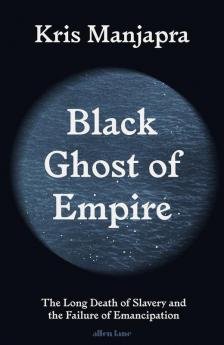This Book is Out of Stock!
Hardback
₹1399
₹1999
30.02% OFF
(All inclusive*)
Delivery Options
*COD & Shipping Charges may apply on certain items.
Review final details at checkout.
Looking to place a bulk order? SUBMIT DETAILS
About The Book
Description
Author
<p><b>'One of the most important and timely books I've had the privilege to read' Corinne Fowler author of <i>Green Unpleasant Land</i></b><br><b><br>A revelatory historical indictment of the long afterlife of slavery in the Atlantic world </b><br><br>To fully understand why the shadow of slavery haunts us today we must confront the flawed way that it ended. We celebrate abolition - in Haiti after the revolution in the British Empire in 1833 in the United States during the Civil War. Yet in <i>Black Ghost of Empire</i> acclaimed historian Kris Manjapra argues that during each of these supposed emancipations Black people were dispossessed by the moves that were meant to free them. Emancipation in other words simply codified the existing racial caste system - rather than obliterating it. <br><br> Ranging across the Americas Europe and Africa Manjapra unearths disturbing truths about the Age of Emancipations 1780-1880. In Britain reparations were given to wealthy slaveowners not the enslaved a vast debt that was only paid off in 2015 and the crucial role of Black abolitionists and rebellions in bringing an end to slavery has been overlooked. In Jamaica Black people were liberated only to enter into an apprenticeship period harsher than slavery itself. In the American South the formerly enslaved were 'freed' into a system of white supremacy and racial terror. Across Africa emancipation served as an alibi for colonization. None of these emancipations involved atonement by the enslavers and their governments for wrongs committed or reparative justice for the formerly enslaved-an omission that grassroots Black organizers and activists are rightly seeking to address today. <br><br><i>Black Ghost of Empire </i>will rewire readers' understanding of the world in which we live. Paradigm-shifting lucid and courageous this book shines a light into the enigma of slavery's supposed death and its afterlives.</p>
*COD & Shipping Charges may apply on certain items.
Review final details at checkout.
₹1399
₹1999
30% OFF
Hardback
Out Of Stock
All inclusive*
Details
ISBN 13
9780241392461
Publication Date
-19-04-2022
Pages
-256
Weight
-376 grams
Dimensions
-162x240x16.98 mm
Imprint
-Allen Lane








